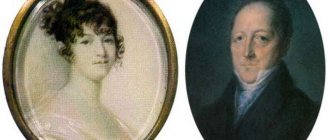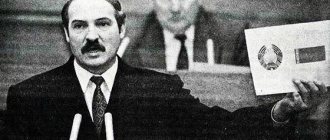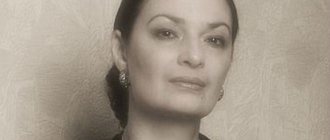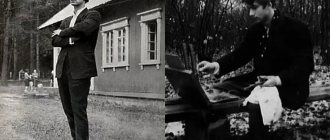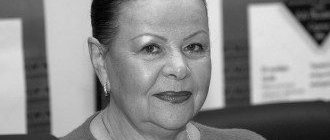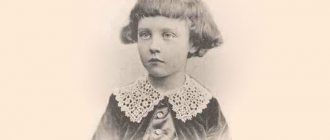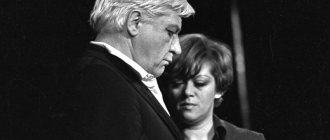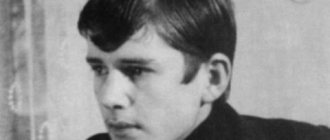Mother and father are always proud of their children's talents. This can be said about Pushkin’s parents. The poet's biography deserves careful study, because he is considered an unattainable figure in Russian culture. Relationships with loved ones affected the creativity of the genius. He received recognition during his lifetime, and to this day is surrounded by an aura of glory. The family of Alexander Sergeevich Pushkin is an interesting topic for research.
Early ancestors of genius
If contemporaries remember the summary of the works and the biography of the writer, then few know what family he was born into. Moreover, what was the name of the poet’s grandmother, mother, and father? It is worth starting the study with his earliest ancestor - Hannibal Abram Petrovich, born in 1696. He was of Ethiopian descent. Peter the Great loved him very much. The sovereign taught the Ethiopian to read and write, various sciences and sent him to France to receive military education.
After returning to Russia, Hannibal became the chief translator at court. He also taught mathematics and engineering to officers. When the emperor died, they forgot about Abram Petrovich. Only Elizaveta Petrovna gave him some family estates. Alexander Sergeevich always remembered his ancestor with respect.
The fate of grandmother Maria
It wouldn’t hurt to briefly get acquainted with the fate of Pushkin’s grandmother, Marina Alekseevna, born in 1745. She is a native of Nizhny Novgorod. The woman’s parents were Sarra Yuryevna and Alexey Fedorovich Pushkin. In 1772, Marina Alekseevna became the wife of O. Hannibal. The marriage produced a son, Nikolai, and a daughter, Nadezhda. She became the future mother of the poet.
After 4 years, Hannibal left his wife and married another. Maria Alekseevna and her daughter lived in Moscow. She raised little Alexander Sergeevich. From her lips the poet learned about his great ancestors.
Did Alexander Sergeevich Pushkin have any children, and what were their names?
The question whether Pushkin had children or not comes up quite often. When studying the biography of Pushkin, you can find out that in his marriage to Natalya Goncharova they had four children. The eldest and youngest daughters and two middle sons - that’s how many heirs the beautiful Natasha gave Alexander Sergeevich.
What were the names of Pushkin's children ? Alexander Pushkin's eldest daughter was named Maria, his sons were Alexander and Grigory, and the youngest was Natalya. The fate of each of them is quite interesting.
Sergei Pushkin
It’s worth figuring out what the names of Pushkin’s parents were. Alexander's father was Sergei Lvovich, born in 1770. He was a sergeant in the Life Guards Izmailovsky Regiment. Then he rose to the rank of captain-lieutenant. Sergei Lvovich finished his service with the rank of major. In 1802, he moved to Moscow and began working as a state councilor.
In 1796, the man married Nadezhda Osipovna Hannibal. The family owned two estates - Boldino and Mikhailovskoye. Twice Sergei Lvovich almost became bankrupt. He was not involved in managing the farm; it did not bring him pleasure. The wife was involved in raising the children. My father was a talented man. He took part in various performances, wrote poetry, and communicated with poets . His circle included the following celebrities:
- V.A. Zhukovsky;
- N.M. Karamzin;
- K.N. Batyushkov;
- DI. Fonvizin.
Pushkin's father passed away in 1848; he lived to be 78 years old. He outlived his famous son by 11 years.
Modern descendants of Pushkin are married to each other - who is still alive and where they live now
The great Russian poet Alexander Sergeevich Pushkin and the daughter of collegiate assessor Nikolai Afanasyevich Goncharov Natalia got married in February 1831. Their marriage lasted only six years - at the beginning of 1837, Pushkin died from a mortal wound received during a duel with an officer of the Cavalry Regiment, Dantes.
But by this time the couple already had four children: two daughters - Maria, 4 years old, and Natalya, 6 months old, two sons - Alexander, 3 years old, and Grigory, 1.5 years old. They inherited only debts from the poet, and only the decree of Emperor Peter the Great to write them off saved the family from ruin.
What happened next to the fate of Pushkin’s heirs?
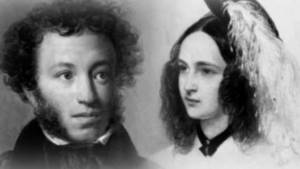
Maria , having graduated from the Catherine Institute, became a maid of honor to Empress Maria Alexandrovna (wife of Emperor Alexander II). In April 1860, Maria married Major General Leonid Hartung, who managed the Imperial Stud Farms in Moscow and Tula. He shot himself in 1877 due to allegations of embezzlement that were not proven.
Pushkin's eldest daughter never married again. After the revolution, she lived in terrible poverty. People's Commissar of Education Lunacharsky obtained a pension for her, but Maria did not have time to receive it - she died in March 1919 from hunger.
Natalya married Mikhail Dubelt, who was very fond of gambling and had a violent temper. They divorced after 9 years. After which Pushkin’s youngest daughter went abroad, where she married Nicholas of Nassau, a descendant of an ancient family of rulers of the Duchy of Nassau.
In two marriages, Natalya gave birth to six children (three in each). She survived her husband, who died in 1905, by 8 years. According to the will, the ashes of Pushkin’s youngest daughter were scattered over her husband’s grave.
Alexander, who had a very similar face to his father , graduated from the Corps of Pages and with the rank of cornet entered the Life Guards Cavalry Regiment. He took part in the Crimean War, in the Russian-Turkish War of 1877-1878, for which he was awarded the Order of St. Vladimir, 4th degree, and a golden weapon “For Bravery.”
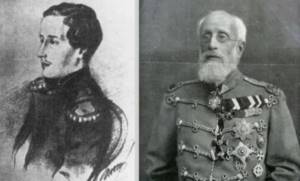
Pushkin’s eldest son died at the age of 81 in the village of Maloye Ostankino. It is known that his daughter Maria in 1881 married Nikolai Vasilyevich Gogol’s nephew, Nikolai Bychkov.
Pushkin’s youngest son Grigory graduated from the same military school, but at the age of 30 he retired with the rank of lieutenant colonel. He lived for a long time on his father’s estate in the village of Mikhailovskoye, Pskov province.
And in recent years he lived not far from Vilna on the estate of his wife Varvara Alekseevna. Grigory Alexandrovich died in 1905 and was buried in Mikhailovsky near the chapel. He had no children.
Pushkin's widow married again in 1884 - to Pyotr Lansky, Major General of the Life Guards Cavalry Regiment - and gave birth to three more daughters.
are only survivors today - Alexander Alexandrovich Pushkin, born in Brussels in 1942. He lives in Belgium, the man regularly visits the homeland of his great ancestor, and received Russian citizenship from Vladimir Putin. He is an electronics engineer
By the way, his wife Maria Alexandrovna is also a descendant of Pushkin. The couple are second cousins.
Yulia Pushkina changed her last name when she was married, but now she is Pushkina again.
Poems are written by several descendants of Alexander Sergeevich. Also among the descendants is one professional artist - Nikolai Danilevsky.
Nikolai's great-grandmother, Sofya Nikolaevna, granddaughter of Alexander Alexandrovich Pushkin - the son of Alexander Sergeevich Pushkin and daughter of Gogol's nephew - Nikolai Bykov, married to Danilevskaya.
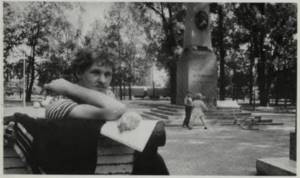
Nikolai Danilevsky in the park near the site of A.S.’s duel. Pushkin. summer 1986. (c) people of Russia.rf/danilevskiy
At the moment, Nikolai Danilevsky lives and works in St. Petersburg, he is a permanent member of the “International Association of Artists-Descendants of Noble Families”. The artist’s works are in both Russian and foreign collections, corporate and private collections, and in museums in Russia and Europe. Participant of international and Russian exhibitions.
Relationship with father
The poet had a rather tense relationship with his father. The parents of Alexander Sergeevich Pushkin began to be hostile towards him after being exiled to the village of Mikhailovskoye. Father and son quarreled because Sergei Lvovich allowed officials to strictly monitor Alexander in his own home.
For three years the parents did not communicate with the poet. Later, Zhukovsky reconciled his son and his father. Having become a married man, Alexander Sergeevich became the support not only of his young family, but also of his father and mother.
Writer's mother
Contemporaries are interested in the name and patronymic of the poet’s mother. Her name was Nadezhda Osipovna. A woman was born in St. Petersburg. When her mother died, she became the mistress of the Mikhailovskoye estate. Soon she and her husband began to use it as a summer house. The family spent summer days there.
Nadezhda Osipovna was an educated woman. In secular society, the lady enjoyed great success. Her portrait proves that she was very beautiful . For her unusual appearance, the woman was called a “beautiful Creole.” The lady shone with wit, manners, and ability to conduct a conversation. Nadezhda got married at 21 and gave birth to 8 children. Only three of them lived to old age.
The poet's youngest daughter
It was clear even during Pushkin’s lifetime that the girl would grow up to be wayward and stubborn. At the time of the death of the famous ancestor, Tata was 8 months old.
In Moscow, more than half of the courtyards and two-thirds of the streets were cleared of snow
Cryptochromes help plants see the world in a different light from us
Slender brunette with long hair Laysan Utyasheva radically changed her image
Natalya Alexandrovna grew up restless, but she had all the necessary knowledge and manners in her arsenal from the age of 13. At 16, she was irresistible, sophisticated and fragile. It was at this age that she had her first love, which turned her whole life upside down.
Nikolai Orlov, the son of the head of the Third Department, was inflamed with love for the girl, but his father stopped his attempt to woo him, considering the bride unworthy. After a while, despite all excuses, Natasha married a player and a subordinate of a failed relative - Dubelt.
How Tata managed to give birth to three children in such extreme conditions in which she lived remains a mystery. The gentle beauty went through all the circles of hell, was repeatedly beaten by her husband, trampled under boots, and her body forever retained the marks of spurs.
Alexander II became aware of the tragic fate of the woman. Dubelt was removed from office, and Natalya, after 9 years of marriage, was forced to go into hiding. Only in Germany was she lucky enough to meet a longtime admirer - Nicholas Wilhelm of Nassau. For the sake of his beloved, the prince renounced his right to the throne.
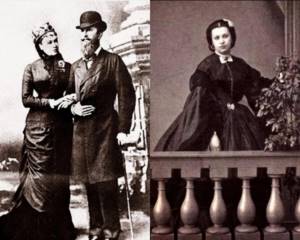
In marriage, Natalya Alexandrovna gave birth to a son and two daughters and lived a long and happy life as a countess.
Is the shirt too big? We adjust it to size without ruining the item: tips for washing and drying
Those who have been in contact with others while sick with COVID may be prosecuted
I take care of both my health and my money: 2 reasons why I avoid washed vegetables
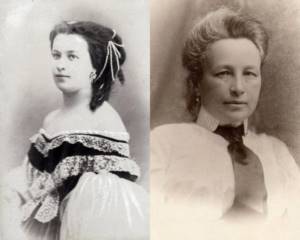
Difficult relationship with mother
Since childhood, the mother gave more warmth and care to her daughter Olga and son Leva. She did not fully understand Alexander’s character, so she did not find a common language with him. Later, my mother rarely took part in the poet’s fate.
The main thing that Nadezhda Osipovna did an excellent job with was housekeeping. She also tried to give her children an education. The family did not always have the means to pay private teachers. All children knew French, which was a “pass” to high society.
When the brilliant son showed his talent, his mother became proud of him and showed special warmth. The exile to Mikhailovskoye made Nadezhda Osipovna miss Alexander. The woman filed petitions everywhere for her freedom-loving son to have his sentence commuted. Pushkin never managed to find out about such a spiritual impulse of his mother.
At the end of her life, the seriously ill Nadezhda Osipovna surrounded her son with attention. She repented and even asked the poet for forgiveness. Alexander’s heart gradually thawed. When his mother died, he took the body for burial to the Svyatogorsk Monastery. After that, he wanted to be buried in the same place. Alexander Sergeevich addressed his lines to many people, but he did not write anything about his parents.
Pushkin and his beautiful Angeliques
Was Leon Trotsky the great-grandson of the great poet?
The fruits of unhappy love
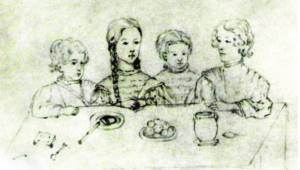
Pushkin's legitimate children: Grisha, Masha, Tasha, Sasha. Mikhailovskoe, 1841. Drawing by N.I. Friesengorf, friends N.N. Pushkina
Pushkin inherited his unbridled temperament from his ancestors. Did it bring him more happiness or trouble? The poet experienced many love affairs: fleeting or serious, pacifying or, on the contrary, inspiring brilliant poems - whether during meetings, during partings, while waiting for dates... Constantly falling in love, winning valiant victories on the heart front was common in those days for men too, and for women. Only sometimes, as a result of love affairs, children were born that ardent lovers did not count on at all.
Pushkin had four children born in a legal marriage with Natalya Nikolaevna: Alexander, Natalya, Maria and Grigory. But it is difficult to even imagine that descendants did not appear on his side. And this topic, no matter how it is hushed up, not wanting to discredit “our everything,” rightly comes up again from time to time.
In the almanac “Monument to Russian Muses” for 1827, his only poem in the romance genre was published without Pushkin’s permission:
In the evening, in the stormy autumn,
In distant places, a maiden walked and held the secret fruit of unhappy love in trembling hands.
Apparently, by this time (and it was written in 1819, and we will see that it was not in vain) the topic seriously worried him...
With illegitimate children of nobles, everything was simple and difficult. They lost their right to nobility; they were not accepted by high society. But until 1917, the illegitimate ones themselves (or their descendants) had the right to bring legal action against some greyhound journalist or memoirist who made public the secret of their birth, that is, information discrediting their name, even if it was true. And they received considerable financial compensation for defamation.
Such children (they were called bastards) were given false birth certificates and given away for a certain bribe to be raised in other people's families, from whom they took an oath never to reveal the truth about the origin of their adopted child. That is why it is so difficult to restore at least some information about Pushkin’s undoubtedly illegitimate children.
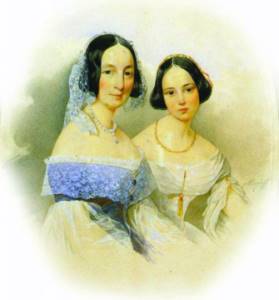
Elizaveta Vorontsova with her daughter Sonya. Watercolor N.I. Alekseeva. Early 1830s
Daughter Sonya
From September 1820 to August 1823, Pushkin was in southern exile in Moldavia. It’s hard to imagine that he wouldn’t fall in love with a gypsy, if he had already been wandering around for two or three weeks with a camp. In Chisinau, in any case, they said that he definitely had a black-eyed sweetheart.
Having soon written one of his best poems, “Gypsies,” Pushkin left Aleko’s monologue over the cradle of his newborn son unfinished in the manuscript. For what reasons is still unknown. And what is the fate of this child (in the poem - Aleko and Zemfira)? The mother dies, and the baby disappears into the steppe along with the camp. Where is life here, where is fiction? If some kind of genius gypsy was born, there is nothing to talk about, all ends are in the water. Only memories and torment of the poetic soul.
In the summer of 1823, Pushkin moved to Odessa to serve the Novorossiysk Governor General Mikhail Vorontsov. He found himself in a real European city with good Italian opera, casinos, fashionable shops and restaurants. Here one could read plenty of French newspapers and books. Is it surprising that the young poet enjoyed going to balls, sulking at cards and generally indulging in the joys of life!
It was at the ball that he met the governor’s wife Elizaveta Ksaverevna Vorontsova and, being seven years younger, fell passionately in love with her. In February 1824, she reciprocated the love of a young man devoted to her, so unusual and unlike anyone else, who also dedicated many poems to her.
And in May, Vorontsov, suspecting his wife of infidelity, sent Pushkin to neighboring counties to collect information about the losses caused by locusts... But he could not help but know that Elizabeth had cheated not only on him, her legal spouse, but also on Pushkin: by this time from Kiev Eliza's second cousin and Pushkin's friend Alexander Raevsky returned, burning with an irresistible passion for her.
In July 1824, following Vorontsov’s denunciation, Pushkin was exiled to his parents’ estate, Mikhailovskoye. The thought of Vorontsova haunted him. They consisted of correspondence that has not survived, and what Eliza wrote to him in October 1824, we will never know. What is known is that the letter completely shocked him, for on that day he wrote two lines: “Farewell, child of my love,/I won’t tell you the reason...” (There is, however, a version that there was no correspondence at all and Pushkin scholars only trying to pass off wishful thinking.)
Be that as it may, on April 3, 1825, Elizaveta Vorontsova gave birth to a daughter, Sonechka. The dark, black-haired girl was of a completely different breed than the other fair-haired children of the count's family. She was distinguished by her original eye shape and plump lips.
Vorontsov did not even mention her birth in the notes addressed to his sister, Lady Pembroke, living in London. Later, when Sophia grew up, she was sent to study at an expensive school in England. In 1844 she married Count Andrei Pavlovich Shuvalov.
Natalya Nikolaevna Pushkina knew about the existence of this illegitimate child, the poet himself told her about his daughter before the wedding.
I wonder what he thought about when he realized not just the fact of Eliza Vorontsova’s affair with Alexander Raevsky, but also the well-known story about when her lover, who had already been abandoned by her, stopped her carriage one day on an Odessa street and shouted: “Take good care of our daughter.” !
The rest, if desired, let everyone calculate and figure out for themselves.
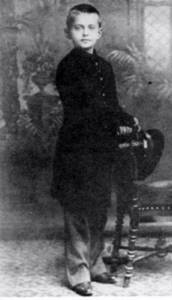
Lev Bronstein in childhood. 1888
Son Pavel
In August 1824, Pushkin arrived in Mikhailovskoye. At night, the 19-year-old beautiful serf Olga Kalashnikova (her name is included in the poet’s Don Juan list) came to him. By the way, this romance was greatly facilitated by the nanny Arina Rodionovna.
In the spring of 1825, Olga suffered from her lover, which frightened him terribly: he really didn’t want to sort things out with his and Olga’s parents. He decided to send her to Moscow to his friend Vyazemsky, so that he would facilitate the “secret birth.” “Shelter her in Moscow,” Pushkin wrote to him, “and give her as much money as she needs, and then send her to Boldino (to my estate, where there are chickens, roosters and bears)... With this, with fatherly tenderness, I ask you to take care of the future baby , if it's a boy. I don’t want to send him to an orphanage, but isn’t it possible to send him to some village for now?”
On July 1, 1826, in Boldin, Kalashnikova, who moved there with her father, gave birth to a son, Pavel, a weak, premature child who did not live even three months. Pushkin was not interested in either Olga or the fate of the baby. I learned about my son, who had lived so little in this world, only a few years later.
According to some reports, Olga Kalashnikova subsequently turned to Pushkin more than once with a request to help with money, and he sent it to her from St. Petersburg.
Son Leonty, great-grandson Lev
But perhaps the most mysterious story is connected with the name of a certain Angelica.
In 1817 or 1818 in St. Petersburg, after graduating from the Lyceum, Pushkin started a passion. We learn her name from the notes of his friend Ivan Pushchin: “In my neighborhood, on the Moika, lived Angelica - a lovely Polish woman!” By all hints and signs, young Pushkin visited her often, and not without consequences.
In September 1820, he enthusiastically wrote to his brother Lev about Nikolai Raevsky Jr., the general’s son: “You know our close connection and important services, forever unforgettable for me.”
It is reliably known that Raevsky, at the request of Pushkin,
some illegitimate baby
to Poltava, to the southern estates of the Raevskys. The baptismal certificate was written out in the mother’s surname (Dimbensky? Debinsky? Dembinsky?), and Adjutant Leonty acted as godfather (by the way, Leonty Dubelt is Benkendorf’s right-hand man in the future). Apparently, that’s why the boy was registered as Leonty. He grew up somewhere near Poltava, and Dubelt, already from St. Petersburg, patronized him. Leonty Dembinsky (here the surname already appears with all certainty) became the secretary of the old Raevsky.
Then the close gaze of Pushkin scholars follows the son of this Dembinsky - Davyd Leontyevich, born in 1846, who, also being illegitimate, was given to be raised in the respectable, teetotal Bronstein family.
But then a terrible Soviet fairy tale begins: knowing that he is Pushkin’s grandson, Davyd (David) Leontievich, having married a Jewish woman, names his children Alexander, Olga and Leiba (Lev), that is, the same name as the poet himself, his sister and brother . Publicist Alexander Latsis believes that Lev Davidovich Bronstein (Trotsky), born in 1879 in the Kherson province, is a direct descendant of Pushkin through an illegitimate line.
As a child, the boy had light blue eyes, curly hair, a straight nose, and thick lips. He was smart and talented beyond his years; at the Odessa School of St. Pavel, Lev came first in all disciplines.
All his life he was distinguished by indomitable “African”
energy and, most importantly, an incredible love for words.
By the way, in David Bronstein’s house they spoke Russian and Ukrainian, and not Yiddish or Hebrew, they did not observe religious rituals and worked on Saturdays.
Indirect evidence of the family relationship between Lev Bronstein and Alexander Pushkin is considered to be causeless fainting and a nervous tic in the left corner of the mouth of both, as well as gout, myopia and various intestinal disorders, which, however, are characteristic of any extraordinary nervous personality.
It remains only to add that two Pushkinists who defended this version died in a strange way. In 1937, Sergei Gessen was hit by a car chasing him in the center of Leningrad. 12 years later, Lev Modzalevsky accidentally (?) fell out of the Moscow-Leningrad train. The state did not allow sunspots, and then there is such a super-delicate topic!
The authentic sources on Pushkin were discovered with great difficulty. In the national libraries named after. Lenin and Saltykov-Shchedrin, the works of all unwanted Pushkinists were sent to a special storage facility - there was a hefty list of them.
But this was not only the case in the USSR. Back in 1906, Pushkinist Sergei Sukhonin asked the police archive for a file on Pushkin and received the answer: “Tell me what you need, and we will decide what to give and what not…”
Today they don’t talk about Pushkin’s relationship with Trotsky. The version is known to scientists, but is not unconditionally accepted. After all, even with maximum documentary evidence, it is impossible to get used to it.
Andrey Arder
Similar articles:
- Dinosaurs were exterminated by aliens.
For what? For some reason, everyone is interested in how and under what circumstances the terrible monsters of the Mesozoic - dinosaurs - died. But a much more intriguing question is how they... - The head of the family is the deer!
This indigenous people of the North has many names. Scandinavians and Russians called them “Lapps”, “Loplyans” or “Lop”. This is where the name Lapland comes from... - The quiet charm of the Carmelites
The lonely bird sings the quietest of all Perhaps, not a single monastic order in the entire history of Christianity has preserved its traditions as carefully as the Order of the Carmelites... - Aty-bats, the humpbacks walked
Without camels, these humpbacked workers, the expanses of hot deserts would hardly be inhabited to this day, despite the advent of airplanes and helicopters. By …
Arina Rodionovna
The most famous nanny in Russia is considered to be the teacher of Alexander Sergeevich. It is impossible to imagine the Pushkin family without Arina Rodionovna. A great genius found inspiration in her fairy tales. The nanny was a simple peasant woman born in the village of Suyda near St. Petersburg. She grew up in a large family. In 1759, Pushkin’s great-grandfather bought the village.
After getting married, Arina Rodionovna began working as a wet nurse and nanny. The woman raised her four children at the same time. Each time the serf moved to where the owners followed.
Several generations of Pushkins grew up listening to the lullabies of their nanny Arina. At first she raised her mother Nadezhda Osipovna. For good work, the woman was given a house in Kobrino. It was the nanny who was with Alexander during his exile in Mikhailovskoye. They spent evenings together, and the poet listened to Arina Rodionovna’s tales, songs and fables. The genius immortalized her image in his work. The nanny died at the age of 70 from age-related diseases. The woman was buried in St. Petersburg at the Smolensk cemetery.
The poet's firstborn
Maria Alexandrovna was born in 1832 and at the time of her father’s death she was only 5 years old. From the memoirs of her contemporaries, we can conclude about her incredible similarity with Pushkin, her sharp mind, sophistication and education. In 1868, Leo Tolstoy “copied” all the features of a woman to describe Anna Karenina in a sensational novel.
How to make a refreshing furniture spray: I make it with rosemary
Meteorologists: you shouldn’t wait for spring in Moscow before mid-April
St. Petersburg volunteers held the event “With Love in the Heart”
Since the girl lost her father early, she was given a home-based and quite decent education. Mother and aunt helped him master playing the piano, grammar, reading, embroidery, Russian literacy and literature. Good teachers were also hired to improve knowledge and skills. Masha has mastered several foreign languages.
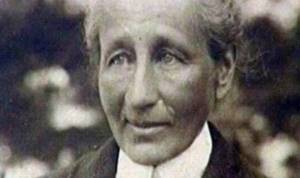
Since 1852, Maria Alexandrovna was granted maid of honor - she was with the wife of Emperor Alexander II.
The woman was in no hurry to get married, and only at the age of 28 she started a family with the manager of the Imperial Stud Farms, Major General Hartung. Unfortunately, after 17 years of marriage, her husband died - he shot himself due to unfair accusations of embezzlement.
Since Masha did not have her own children, she devoted the rest of her life to raising the children of her brother Alexander - orphans from her first marriage.
Maria Alexandrovna survived a lot of historical events (revolution, the advent of Soviet power), but died at the beginning of the last century from hunger at the age of 86.
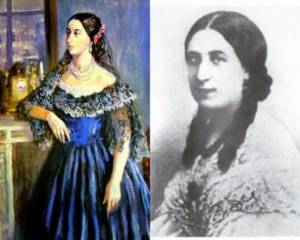
Brothers and sisters
Parents were strict with their children. Pushkin had 5 brothers and 2 sisters:
- Olga;
- A lion;
- Nikolai;
- Sophia;
- Paul;
- Michael;
- Plato.
The last five on the list died several months or years after birth. In addition to Arina Rodionovna, uncle Nikita Timofeevich Kozlov was assigned to the children.
Alexander was especially friendly with his sister Olga . They told each other all their secrets. The strong-willed and decisive sister grew up as an educated girl. In 1828, she married Pushkin’s friend, Nikolai Ivanovich Pavlishchev. This marriage did not last long, although a wonderful son was born. Olga met old age alone. Later, her son Leo remembered his famous uncle.
The favorite in the Pushkin family was Alexander’s younger brother, Lev. There was mutual affection between the children. Lev Sergeevich became an officer and took part in military campaigns. Communication with progressive people led him to Senate Square, where the Decembrist uprising took place in 1825. Then Lev helped Alexander, becoming his secretary. When the poet died, his brother almost challenged the culprit of his death, Dantes, to a duel.
What was the fate of Pushkin’s children?
So how did the children of Pushkin and Goncharova live? Their fate, according to the photo, was quite interesting. Maria Alexandrovna, the eldest daughter in the family, got married at the age of 28, in 1860. Maria's husband was Leonid Nikolaevich Hartung, who was a major general. They lived in marriage for 17 years, in 1877 Nikolai died. They had no children. From 1900 to 1910, Maria was in charge of a reading room in Moscow. An interesting fact is that Lev Nikolaevich Tolstoy, after meeting Maria, reflected some of her features in the image of Anna Karenina. Pushkin's eldest daughter died in 1919, on March 7.
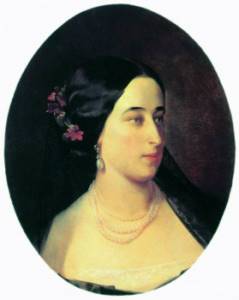
Alexander Alexandrovich studied at the 2nd St. Petersburg Gymnasium. Then he graduated from the Corps of Pages. He graduated as a cornet and was subsequently promoted to colonel in 1869 and to lieutenant general in 1890. In 1891 he was transferred to the civilian position of Privy Councilor. Actively developed the education system. In 1898 he again became a lieutenant general. There were two marriages in his life. In his first marriage with Sofia Lanskaya, 11 children were born, in his second marriage, with Maria Pavlova, two. Died in 1914, July 19.
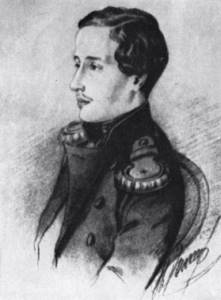
Grigory Aleksandrovich Pushkin also graduated from the Corps of Pages. After long service, he retired in 1856 with the rank of lieutenant colonel. In 1866 he was appointed state councilor. He married Varvara Mashkova in 1884. Gregory devoted a lot of time to preserving the memory of his father - he set up a memorial corner and held charitable literary evenings. Died in 1905, August 2.
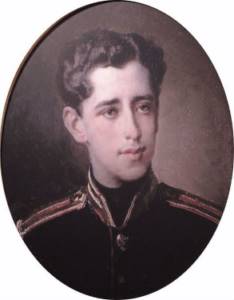
Natalya Alexandrovna, the youngest in the family of Pushkin and Goncharova, lived a bright and quite long life. At the age of 17 she married Mikhail Dubelt, but this marriage was not destined to be happy. Natalya in this union became the mother of three children - Natalya, Leonty and Anna. The second marriage was with Prince Nicholas-Wilhelm of Nassau. In it, Natasha became the mother of three more children - Sophia, Georg-Nikolai, Alexandra.
In 1868, Natalia became Countess of Merenberg, after the name of the fortress, which was located near the family estate of the princes of Nassau. Subsequently, thanks to the efforts of Natalia, this fortress became a museum. She died in 1913, on May 14.
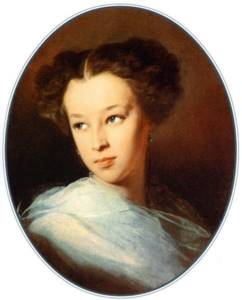
The destinies of Pushkin's children were eventful and interesting. Each of the children of the great poet lived a long, eventful life. The sons of Alexander Sergeevich Pushkin dedicated their lives to service, received well-deserved titles, and devoted a lot of time to preserving the memory of their father. We can say that the eldest daughter, Maria, lived somewhat calmer than the others. But her fate was not so happy - her beloved husband died, and she did not give birth to children in her marriage to him. Natalya, the poet’s youngest daughter, was a bright, beautiful woman; many noted her resemblance to her mother. She had a wayward, stubborn character - sometimes this got in the way in life, and sometimes it helped. A detailed study of the biography of each of Pushkin’s children is a fascinating and interesting activity that is worth devoting time to.
Talented uncle
Alexander Sergeevich's uncle, Vasily Lvovich Pushkin, was a famous poet. Moscow writers visited their house. Even at the age of 18, Vasily Lvovich shone in Moscow salons. Then he became a lieutenant in the Izmailovsky regiment. His poems, songs, elegies, and satires were published in the St. Petersburg magazine “Mercury”. My uncle lived in Paris for a whole year, after which he began to write satirical works. The famous nephew also admired them. When his uncle died, Pushkin took on all the troubles and expenses.
Today, contemporaries are grateful to all the people who gave such a great genius to Russian literature or were somehow involved in his upbringing or development of his personality. His works will be admired by more than one generation.
